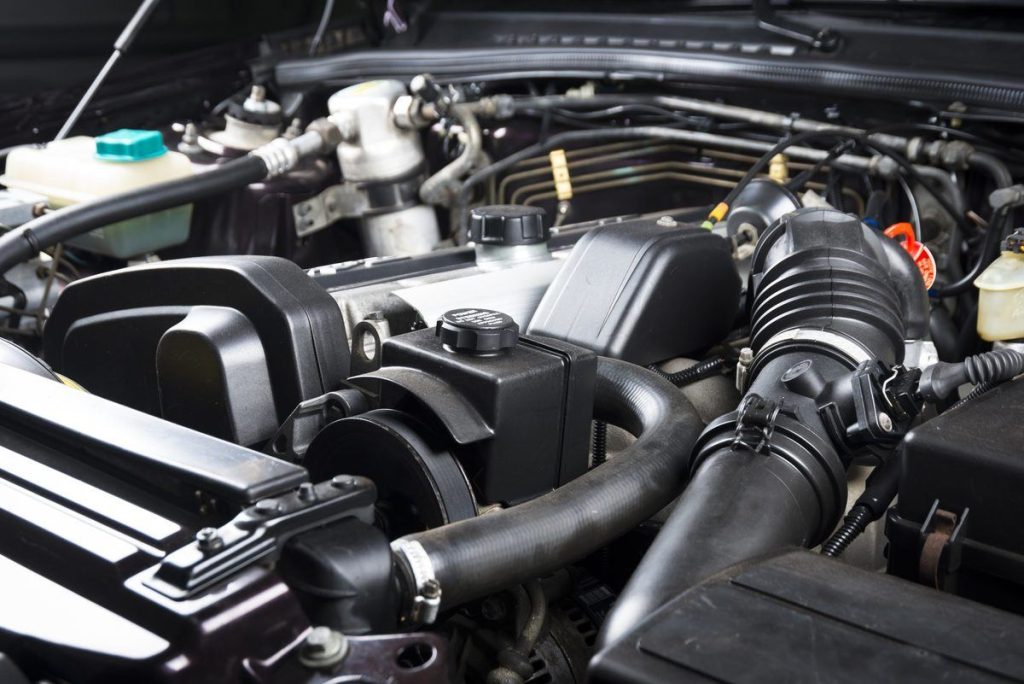The engine is one of the most important parts of your vehicle. Keeping it running efficiently and preventing engine damage is the best way to keep your vehicle running longer.
It’s always better (and cheaper) to prevent any damage from happening to your vehicle – and in particular, its engine. Here are the top 5 things that will damage a car engine, and what you can do to prevent them.
1. Can overheating damage a car engine?
Overheating a car engine is one of the fastest ways to damage the engine. If the temperature gauge is red or indicates that your car is overheating, it’s vital to turn the engine off as soon as possible. If you’re driving, find a safe place to pull over, stop and turn the engine off.
Driving with an overheated engine can do expensive or irreparable damage to your car. Never ignore the warning lights on your dashboard – they’re there for a reason and they can save you a lot of expense and hassle.
Does revving a car engine at full throttle damage it?
There are a few things to consider here. First off, normal revving of the engine doesn’t damage it and shouldn’t cause it to overheat.
The engine may overheat, however, if you over-rev it – particularly if you over-rev a cold engine. Revving at full throttle is not necessary and it’s not cool – it’s likely to cause damage, waste fuel and it’s not good for the environment.
What damage can overheating an engine cause?
Because there are so many interdependent parts in a vehicle, allowing the engine to overheat can cause damage to several other components, including the cylinders, pistons, rods, gaskets and spark plugs.
If an engine gets extremely hot, it can even cause metal to warp or melt.
2. Does the exhaust brake damage the engine?
If your vehicle has an exhaust brake, you might use it when you want to control your speed or decelerate on hills. It helps reduce wear and tear on your brakes, but is it bad for the engine?
The exhaust brake isn’t bad for the engine when used properly. Some would argue that by blocking the exhaust and creating pressure in the manifold and cylinders, this makes the engine work harder. But this won’t necessarily cause damage to the engine, as that is what the exhaust brake is designed for. Our advice here is to try to control your speed when using the exhaust brake so you aren’t putting unnecessary strain on the engine.
3. Lack of fluids
Your engine relies on several fluids in order to function properly. The first fluid you should monitor and top-up as needed is the motor oil, which keeps your engine lubricated. This lubrication not only keeps the parts working properly, it keeps them moving smoothly which, in turn, reduces friction that can lead to overheating.
If the engine oil warning light comes on in your car, do not ignore it! It’s your warning that the oil needs to be checked.
The other fluid to keep an eye on is the motor coolant, which helps prevent your engine from overheating. Low levels of coolant can cause your car to overheat, which can in turn damage the engine.
4. Diesel in petrol engine damage
What happens when you put diesel in a petrol car is you lower the octane of the fuel. The octane rating is how we measure the fuel’s ability to ignite at the right time.
Mixing diesel into gasoline will lower its octane rating, causing it to ignite too quickly, before the piston has risen fully. This slows down and delays combustion, so the engine isn’t performing as it should.
Diesel in a petrol car may also leave partially burned diesel which can damage the pistons, valves and spark plugs. It’s a recipe for disaster. If you’ve accidentally put diesel in a petrol car, don’t drive it. Starting the engine will cause the diesel to enter the fuel line and the engine system, causing damage and making it harder to repair. Let your technician know and arrange to have the car towed.
Can a bad fuel injector damage the engine?
A fuel injector is an electronically controlled valve that determines how much pressurised fuel is supplied through the manifold to the engine. Dirty fuel injectors can create a mix of air and fuel that isn’t optimal, and cause the engine to misfire. If the combination of air and fuel isn’t right, you may find that the motor won’t generate the combustion needed and the engine won’t start.
5. Poor car maintenance and servicing
We’ve mentioned more than once how important it is to pay attention to those warning lights and sounds coming from the dash. It’s also imperative that you pay attention to your vehicle’s required maintenance schedule.
Regular maintenance and servicing is the simplest way to keep your car operating efficiently and to avoid engine damage.
If you’re not sure how often you should have your car serviced, or if you don’t know when your engine was last checked, get in touch with the experts at Mt Roskill Collision Centre to book a car service appointment.
